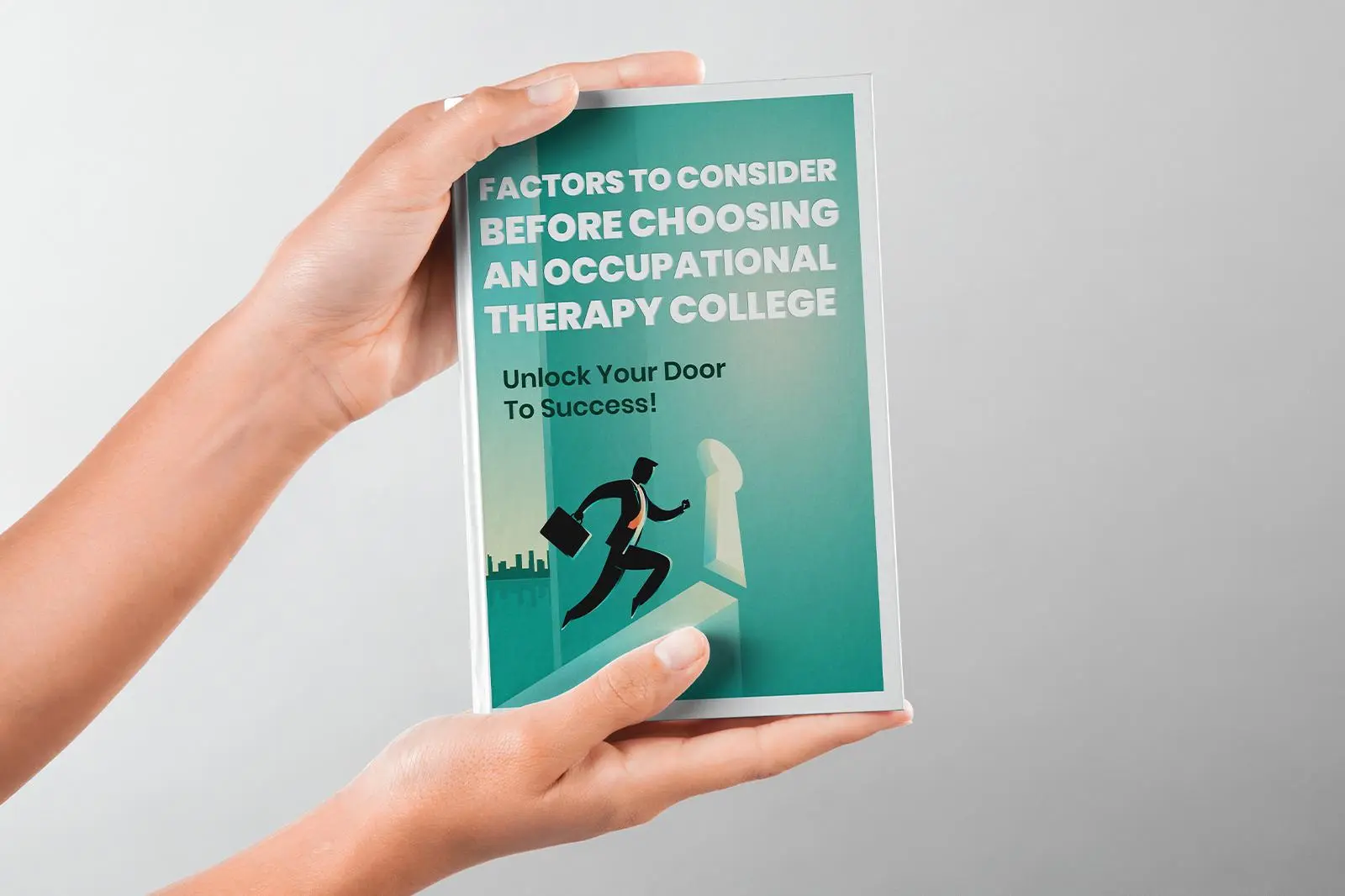XIII/677A, Tapasya, Mattoor, Kalady, Ernakulam, Kerala

Blog posts

15 March, 2022
Nivedita is a contributing author of KOTA web pages and blogs. She has worked on projects to raise awareness on Cyber Bullying and has conducted online seminars on "Emotional Regulation" for students. Her areas of interest are Paediatrics and Mental Health.
FACTORS TO CONSIDER BEFORE CHOOSING AN OCCUPATIONAL THERAPY COLLEGE - Unlock Your Door To Success!
Occupational therapy is a well-paying job in the healthcare industry. Many educational institutions in India offer occupational therapy programs. The objective of the OT coursework is to train students to assess and implement appropriate interventions to improve health and well-being of people by promoting independence in activities of daily living and thereby improving the quality of life.
What to Consider Before Choosing an OT College
If you are considering becoming an occupational therapist, the first step is finding the right college for you. There are several factors to consider when choosing an educational institution. Discussed below are some of the key factors:
1. Accreditation
When choosing a university or institution, it is important to ensure that the university or institution is accredited by the UGC and approved by the All India Association of Occupational Therapists Academic Council (ACOT) and the World Federation of Occupational Therapists (WFOT).
The World Federation of Occupational Therapists is a global organisation that represents occupational therapy professionals and organisations worldwide. India is one of the founding countries of the WFOT, and the All India Occupational Therapy Association works closely with the WFOT.
You must complete the course from an accredited college to get registered and licensed under the All India Occupational Therapists’ Association (AIOTA), and to be eligible for higher education or employment in India as well as in other countries, it is ideal to complete the academic program at an ACOT - accredited institution.
2. Courses offered
The courses offered are
- Bachelor of Occupational Therapy (BOT), the Undergraduate program.
- After completing the undergraduate program, one can pursue Master of Occupational Therapy (MOT) and PhD programs.
3. Eligibility Criteria to Join the Program
- BOT:Candidates must have passed 10+2 or equivalent examinations with a minimum of 50% aggregate marks in Physics, Chemistry, Biology, and English.
- MOT:Candidates must have a BOT degree from an accredited university/institution, they must have 50% percentage of marks in their BOT degree examination, as specified by the university or college offering the MOT program.
- PhD:Candidates must have an MOT degree from a recognized university or college with a minimum of 55% of marks in their MOT degree examination.
Some colleges may require candidates to pass an entrance examination and/or conduct interviews as part of the admission process to be considered for the MOT program.
It is worth noting that the eligibility criteria may vary depending on the college or university offering the program.
4. Course duration
- BOT - 4 years + 6 months internship
- MOT - 2 or 3 years
- PhD - 3 or 5 years
The duration of the course can vary depending on the university.
Type of University
- Central Universities
- State universities
- Deemed University
- Institution of National Importance
- State Private Universities
It is important to thoroughly research each of these universities and weigh the pros and cons of each university to make the best decision for your education and career goals.
5. Curriculum
An institution that offers an up-to-date and evidence-based curriculum with choices from a variety of relevant courses ensures that it covers all essential topics required for occupational therapy education and training.
When choosing an OT specialisation after BOT it is important to consider your interests, career goals and clinical experience. Think about what areas interest you and what type of career you want after graduation. Research the different specialisations available and check if what you're considering is in demand in your area and if it will help you achieve your career goals.
Specialisations currently available in India:
- Neurology
- Mental Health/ Psychiatry
- Developmental Disabilities/Pediatrics
- Hand and Musculoskeletal disorders/ Orthopaedics
- Oncology
6. Fee structure
The cost of the education programs can vary depending on the institution. The fees for attending a private university can be different from a government institution.
7. Campus placements
Occupational therapy colleges offer a range of placements at various private and government institutions such as clinics, hospitals, rehabilitation centres, educational institutes, special schools, etc. It is crucial that you look into the college’s history of successfully placing their graduates in the field.
8. Infrastructure and facilities
Studying at an institution with state-of-the-art infrastructure and facilities offered by the university such as library, labs, etc are of added advantage. One can also visit the institution to get an idea of the infrastructure and facilities offered. Some universities offer campus tours for aspiring students.
Consider the location of the college as well, as it may affect the cost of living, travel, housing, and accessibility to internships and other clinical placement sites.
Apart from the factors discussed above, note that some states have a regulatory body or an allied health council that governs the profession, like the state of Maharashtra. The central government has passed the National Commission for Allied and Healthcare Professions Act, 2021 and it is important to know about the act as it has potential to have a significant impact on the regulation of allied and healthcare professions. It will also give you information regarding the responsibilities and obligations of a healthcare professional.
Quality Education is the key to unlocking your potential – Choose the right institution for you!!!
Choosing the right educational institution for occupational therapy is crucial as it serves as the foundation for your career. The field of occupational therapy is both creative and transformative. Different schools offer varying resources and opportunities. It’s essential to carefully evaluate all the factors mentioned and make an informed decision when selecting an occupational therapy program in India.

